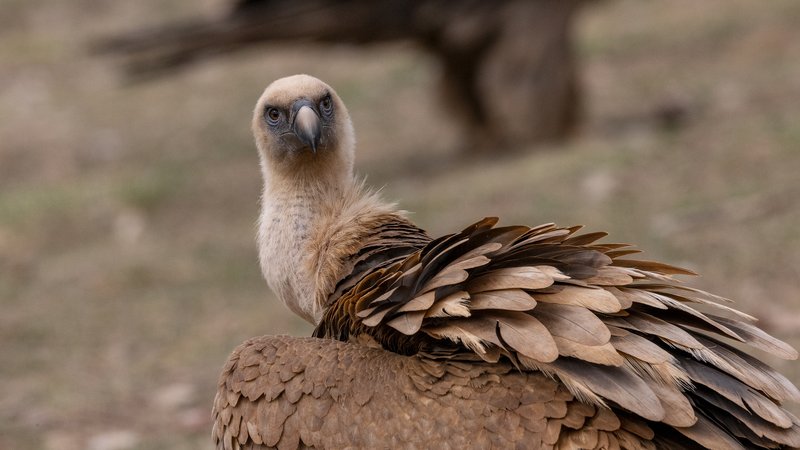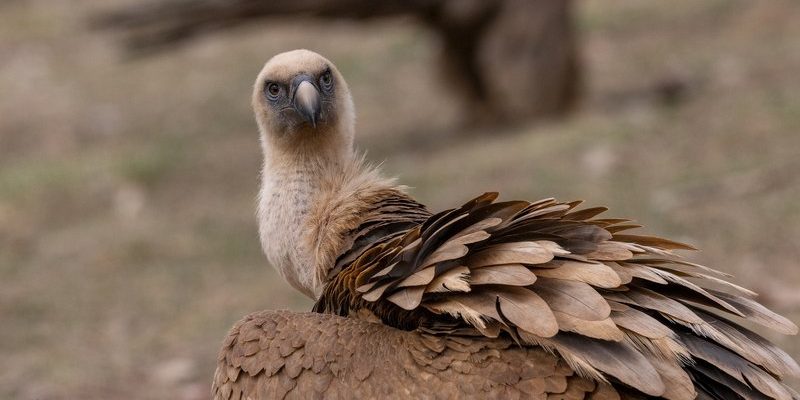
Around the globe, vulture populations are declining, and the Griffon Vulture is no exception. Imagine a world without these impressive birds—nature would be pretty different, right? The decline isn’t just sad; it affects the balance of ecosystems and human health too. The good news is that many organizations are stepping up to protect these birds. In this article, we will look closely at their status, the challenges they face, and the incredible efforts to save them.
Understanding the Griffon Vulture
The Griffon Vulture, or *Gyps fulvus*, can be found in regions like Southern Europe, North Africa, and parts of Asia. This bird can have a wingspan of up to 8.5 feet—imagine a three-piece sofa flying in the sky! It prefers rocky terrains or mountains for nesting, which provides it a good vantage point to spot food.
What’s truly fascinating about the Griffon Vulture is its social behavior. They often feed in groups, relying on their keen eyesight to find meals. They mostly eat dead animals, which is essential for maintaining a clean ecosystem. Think of them as nature’s cleanup crew, swooping in to remove carcasses that could spread disease if left unchecked.
Current Conservation Status
So, is the Griffon Vulture endangered? The IUCN lists it as “Near Threatened.” This means its population is declining, but it hasn’t reached the critical levels of some other species yet. However, numbers vary based on location. For instance, in some regions, populations are seriously dwindling, while in others, conservation efforts have led to modest recoveries.
The global population of Griffon Vultures is estimated to be between 81,000 and 162,000 individuals. This may sound like a lot, but considering their expansive range and the ecological role they play, that number is concerning. A continuous decline could eventually push them closer to the endangered list, which is something we definitely want to avoid!
Threats to the Griffon Vulture
Unfortunately, the Griffon Vulture faces several daunting challenges. The biggest culprit is habitat loss due to human encroachment. As we build more cities and farmland, we strip away the natural environments these birds depend on. Another significant threat is the decline of their food sources. As livestock populations decrease or are managed differently, vultures struggle to find enough to eat.
Additionally, poison remains a huge issue. Farmers sometimes use poison to deter predators from livestock, which can inadvertently kill vultures that feed on poisoned carcasses. This unintended consequence can decimate local populations. Other threats include power lines and illegal hunting, which further complicate their survival.
Conservation Efforts in Action
In response to these challenges, various organizations and governments have stepped up to help save the Griffon Vulture. For example, the Vulture Conservation Foundation works tirelessly across Europe. They focus on creating safe habitats, protecting food sources, and even reintroducing vultures to areas where they’ve vanished.
Another example is the establishment of “vulture restaurants.” These are designated areas where farmers can safely dispose of livestock carcasses. This initiative provides a safe and reliable food source for vultures, helping to bolster their populations. Think of it as a buffet just for these birds, ensuring they have the energy to thrive.
Moreover, awareness campaigns are crucial. Educating the public about the importance of vultures can change attitudes. When people understand the vital role these birds play in keeping our ecosystems healthy, they may be more inclined to support conservation efforts.
Success Stories of Recovery
There have been some success stories when it comes to Griffon Vulture conservation. In places like Spain, coordinated efforts have resulted in positive population trends. Local communities have rallied together, using both traditional and innovative methods to ensure the survival of these birds.
One heartwarming approach is engaging young people in conservation. Schools organize events to teach kids about vultures, inspiring a new generation of wildlife defenders. These young advocates often take home valuable lessons about the importance of biodiversity and sustainability.
Another example comes from the Italian peninsula, where reintroduction programs have seen Griffon Vultures soaring once again in places they’d disappeared from. They are being monitored closely, and the signs are promising, showing that targeted conservation strategies can make a difference.
How You Can Help
You might be wondering how you can contribute to protecting the Griffon Vulture. One simple way is to support organizations that focus on wildlife conservation. Donations can help fund important projects that provide safe habitats and protect food sources.
Another impactful action is spreading the word. By sharing information about the Griffon Vulture and its current challenges, you can help raise awareness. The more people know about the plight of these birds, the more likely they are to care and take action.
Lastly, if you live in or visit areas where Griffon Vultures are present, consider participating in birdwatching tours that promote local conservation. This not only supports the economy but also brings much-needed focus to these incredible creatures.
The Future of the Griffon Vulture
Looking ahead, the future of the Griffon Vulture ultimately depends on our actions today. Conservation efforts are working, but they need continual support and innovation. With ongoing education and community involvement, there’s hope for healthier populations of these fascinating birds.
Moreover, setting up protective policies can strengthen the safety nets for vultures. By ensuring that natural habitats are preserved and that food sources are monitored, we can sustain the balance of our ecosystems, keeping scavengers like the Griffon Vulture in the skies.
In conclusion, the Griffon Vulture isn’t just another bird; it’s a critical player in our environment. Every effort counts, and each of us has a part to play in its conservation. Let’s keep the conversation going, support actions that make a difference, and work together for the future of these magnificent creatures. With a united front, we can certainly make a positive impact!

